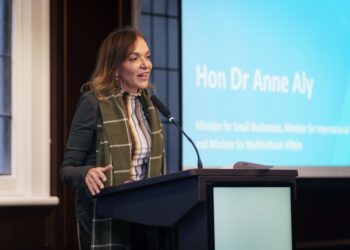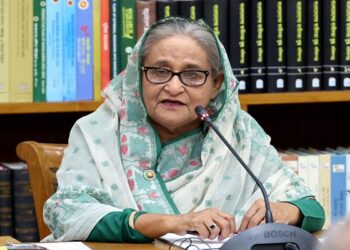Indian-American doctor, Aarti D. Pandya has agreed to pay almost $1,850,000 to settle claims that her medical business performed unnecessary operations and testing on patients, in violation of the False Claims Act.
According to the Department of Justice, ophthalmologist Aarti D. Pandya, “billed the government for cataract surgeries and diagnostic tests that were not medically necessary, tests that were incomplete or of worthless value, and office visits that did not provide the level of service claimed,”
The accusations stemmed from a federal lawsuit brought in 2013 under the False Claims Act’s whistleblower provisions by Laura Dildine, a former Pandya Practice Group office manager. The law gives private parties the right to file false claim lawsuits on behalf of the United States and receive a portion of the settlement. The complaint was submitted in Georgia’s Northern District.
Following the government’s involvement in the qui tam lawsuit, HHS suspended the Pandya Practice Group’s payments, preventing it from obtaining any money from Medicare for Part B claims. Pandya unsuccessfully argued against the suspension of payments in district court.
The Pandya Practice Group consented to forfeit the amount of the suspension to the government as part of the resolution of the government’s claims in this case. The settlement also includes the lifting of the payment suspension.
In addition, the settlement with Pandya addresses accusations that she submitted false claims to federal healthcare programmes from January 1, 2011, to December 2016, for YAG laser capsulotomies and medically unnecessary cataract extraction procedures.
The government claimed that Pandya conducted these procedures on patients who weren’t eligible for them in accordance with accepted medical practice standards, and in some cases did so while endangering her patients.
Furthermore, the government charged that Pandya gave bogus glaucoma diagnoses to patients in order to support pointless diagnostic procedures and treatments that were charged to Medicare.
The government claimed that numerous diagnostic tests that Pandya had ordered were either improperly carried out, carried out on a malfunctioning system, or failed to be correctly interpreted in the patient’s medical file as required by Medicare.
Pandya and the Pandya Practice Group have entered into a comprehensive, multi-year Integrity Agreement (IA) and Conditional Exclusion Release with the Office of Inspector General (OIG) that is stronger than OIG’s standard agreement in order to safeguard federal health care programmes and beneficiaries moving forwards.
The IA incorporates improved material breach provisions as well as training and reporting obligations. The IA further mandates that Pandya and the Pandya Practice Group work with an Independent Review Organization to review claims on a yearly basis to check for accuracy in the coding, submission, and reimbursement of claims as well as the medical necessity of the provided goods and services.
According to the release, OIG did not release its permissive exclusion power and would do so until Pandya and the Pandya Practice Group fulfilled their requirements under the IA.
US Attorney Ryan Buchanan said in a statement on Monday that doctors who perform operations and testing without a valid medical need prioritise profits over patients and put those patients in unnecessary danger.
Ryan said, “This settlement represents our office’s commitment to ensuring accountability for physicians who subject patients to unwarranted medical care and waste taxpayer funds”.
The settlement, according to FBI Atlanta Special Agent in Charge Keri Farley, should serve as a reminder that the government will not put up with healthcare professionals who engage in fraud schemes that endanger innocent victims.
Farley stated, “We must assure patients and taxpayers that healthcare is dictated by clinical needs, not fiscal greed. This settlement should serve as a reminder that the FBI will not tolerate healthcare providers who engage in schemes that defraud the industry and put innocent patients at risk.”











